When will the new traffic police regulations come into force. “turn off the camera”: myths and truth about the new traffic police regulations
“For many years, traffic cops were frankly trolled.” From next week they will come offRules for the work of a traffic police officer rewritten in favor of inspectors
Next week, on October 20, new rules for traffic police officers come into force. Administrative regulations - an internal document, but will affect all drivers - in fact, this is an instruction for inspectors on how to behave with drivers. What is changing for motorists and what now you need to be prepared for when meeting with an inspector on the road, URA.RU figured it out.
Brake drivers anywhere
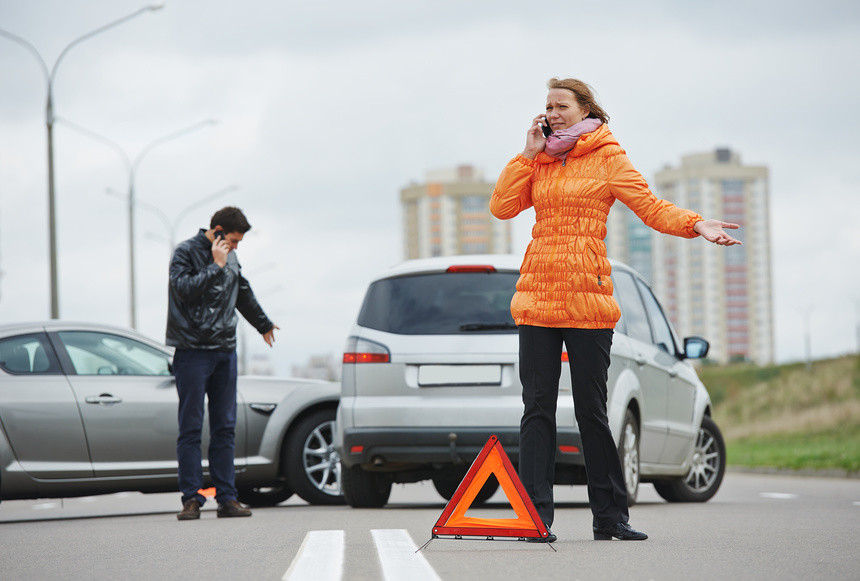
New administrative regulations for inspectors will come into force on 20 October
One of the main innovations is that traffic police officers can stop cars for checks anywhere. This means that they have the right to follow the traffic as they like: at a stationary post, in a car, and even without a patrol car. However, each employee chooses a place not at his own discretion, but solely on the orders of his superior.
A representative of one of the regional traffic police departments recalls that now inspectors are forbidden to stop cars outside stationary posts. According to him, this ban was often used by motorists who were set up for conflict: “They immediately turned on the camera, started asking questions - they say, on what basis are you stopping me? This led to conflicts, which will not happen now - it will be possible to stop everyone in a row and everywhere.
The interlocutor of "URA.RU" explained: each crew has a special route map with them, which indicates where exactly the police should serve. The driver can verify the legitimacy of the work of the crew by calling the duty department of the traffic police.
Ambushes in the bushes
The ambushes of traffic police officers, described in numerous jokes, are now legalized. On the one hand, the regulation notes: “The patrol car must always be clearly visible from afar to all participants traffic". However, the document also provides for concessions: if photo and video recording of violations is carried out, as well as on emergency sections of roads, a traffic police car can be masked using natural terrain in places with limited visibility. In particular, it is allowed to hide behind turns, hillocks and road infrastructure.
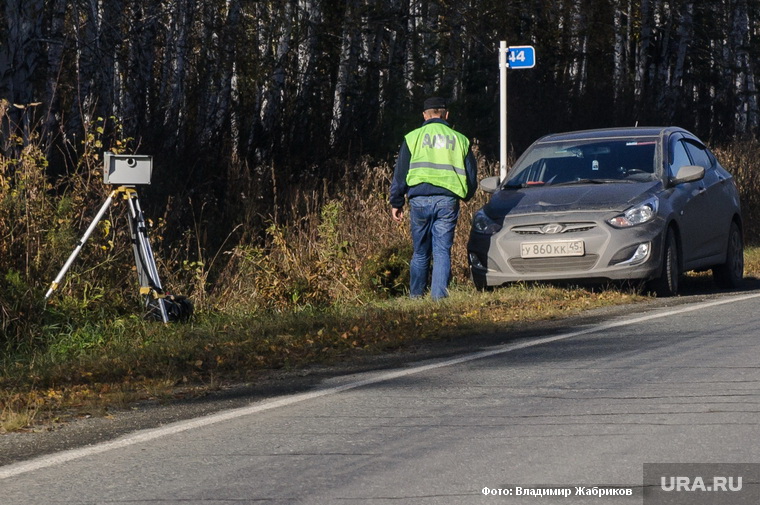
Traffic police ambushes are now legal
Aleksey Dozorov, chairman of the Moscow regional branch of the Committee for the Protection of the Rights of Motorists, believes that this issue is not so fundamental. “If a person drives in compliance with traffic rules, then he doesn’t care where the patrol car is parked - in the bushes or standing right on the road,” he explained to URA.RU.
"Unfasten your rights!"
When stopping, the inspector has the right to require the driver to present documents. Now they will need to be shown not only without a cover, as is now provided, but also without “holding devices”: we are talking, in particular, about iron chains with which some drivers tie their licenses so that the inspector does not take them to check in a patrol car.
“Many drivers actually do just that - in literally fasten their rights. When you ask them to hand over the documents, they simply smirk in response - that's how I handed it over, look. This is some kind of stupid play on words, so they decided to get rid of it, ”a traffic police inspector in one of the Russian regions explained to URA.RU.
Filming the driver
The regulations set out and new normal, according to which inspectors will be able to use "special technical means" (primarily cameras) belonging not only to the state, but also to "municipal bodies, public associations and organizations."
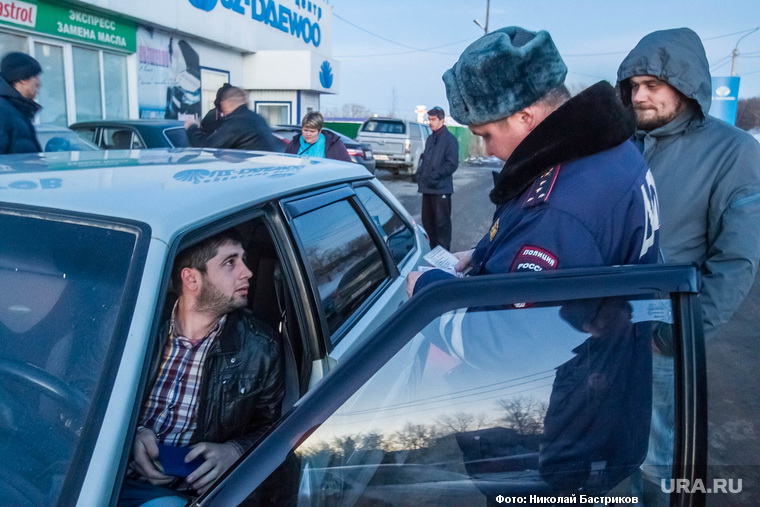
It will no longer be possible to shoot "traffic cops" on video
According to the traffic police, such an amendment is necessary due to the fact that in some regions automatic cameras belong to private companies, such as in Moscow and the Moscow region. IN Ulyanovsk region maintenance of video recording complexes is entrusted to the city authorities, that is, the State traffic inspectorate has an indirect relation to them.
Inspector trolling ban
The new regulation removed the norm allowing the filming of traffic police inspectors. If earlier the traffic police officer had no right to prohibit filming, now he can simply say: "Don't shoot me, I'm against it." In this case, the citizen is obliged to remove the video camera.
If the driver does not listen to the inspector, he is threatened with involvement under Article 19.3 of the Code of Administrative Offenses of the Russian Federation - “Disobedience to a lawful order or demand of a police officer”, which entails the imposition of an administrative fine in the amount of five hundred to one thousand rubles or administrative arrest for up to fifteen days.
“This is an important change, which means that the actions of traffic police officers, including illegal ones, cannot be recorded.
I think that the drivers themselves are largely to blame for this, who for many years in 90% of cases were openly trolling inspectors on the roads. Now it's over,"- explained "URA.RU" the head of the Federation of Russian Car Owners Sergey Kanaev.
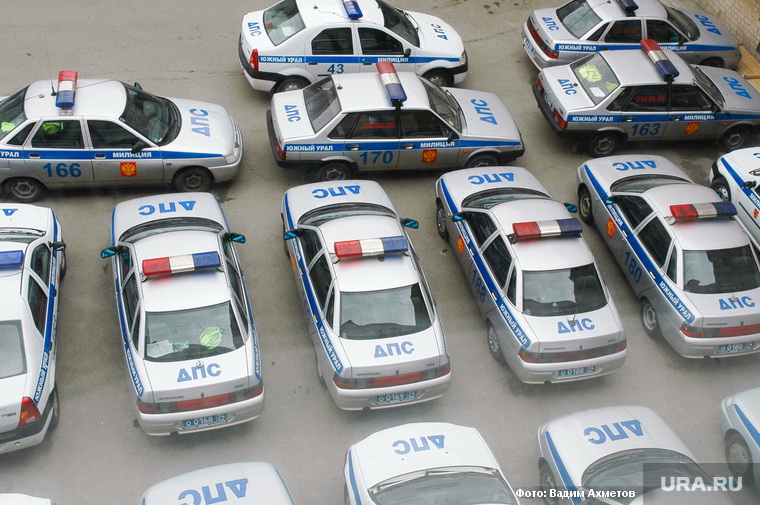
Many provisions of the new regulation play into the hands of traffic police officers
Get out of the car on demand
According to the new regulation, the inspector has the right to ask the driver to get out of the car in case of signs of intoxication or illness. Simply put, the driver is obliged to leave whenever the traffic cop requires it. He will also have to get into a patrol car, if the peace officer wants it.
How will they deal with drunk drivers?
A separate paragraph in the regulations states that the basis for an examination for the state of alcoholic intoxication is the smell of alcohol from the mouth, instability of posture, speech impairment, a sharp change in the color of the skin of the face, behavior that does not correspond to the situation. At the same time, before the examination, the police officer is obliged to remove the driver from control in the presence of two witnesses or using video recording.
If a medical examination in the hospital shows that the motorist is sober, then the inspectors will be required to return him back to his car.
The inspectors were allowed to smoke
The new regulations do not include a ban on smoking when the inspector communicates with the driver. It should be noted that in August it became known that the traffic police inspectors were going to ban smoking and rude language during a conversation with road users. The corresponding initiative was contained in the version of the regulation published on the portal of regulatory legal acts. However, the ban on smoking in the presence of the driver disappeared from the final version of the document.
18.10.2017 We study new document which regulates the relationship between the traffic police inspector and the driverOn October 20, a new administrative regulation for traffic police officers (order No. 664) comes into force, which provoked a fair amount of hype in the media. We decided to find out whether the inspectors were really banned from filming and whether it is true that now you can stop the car to check documents anywhere.
Post finished
What is the reason for the stop? - competent drivers like to ask when they are slowed down by an inspector.
So, earlier, when stopping outside the post, the traffic police officer could not refer to the need to check documents. Now it can. But has anything really changed? No, according to our experts.
The inspector had the opportunity to stop outside the stationary post before, and any more or less savvy employee easily complied with the formalities of the regulations.
In the new regulation, at first glance, the powers are even expanded, but in fact a stop to check documents should still be justified.
The requirements for checking documents have only become tougher: now, even at a stationary post, even outside it, the inspector needs the grounds for this, which are listed in paragraph 106 of the new regulation, - explains auto expert Yuri Panchenko.
Without going into details, the reasons can be divided into three groups: identifying signs of traffic violations, the presence of orientations, or the implementation of events.
Simply put, it is now possible to stop to check documents, but the reasons for stopping the driver are essentially the same! It is enough for the inspector to just declare the identification of signs of a violation of traffic rules or refer to a special operation - and the ceremonial part will be completed.
Drunk drivers most often appealed to this alleged ban on stopping cars outside stationary posts, trying to ruin the case. But I don’t remember any court accepting their reasoning, even if the inspector violated the requirements of the regulations,” explains auto lawyer Lev Voropaev. - Understand that the courts rarely take into account the mentioned regulations when considering administrative cases in relation to drivers, since the proceedings are regulated by the Constitution of the Russian Federation, the Code of Administrative Offenses of the Russian Federation, and the procedure for the actions of the inspector - including Decree of the President of the Russian Federation No. 711, the law "On Police ”, etc. The topic of the ban on checking documents outside stationary posts is initially inflated.
Secret signs
And here is a rather curious aspect discovered by auto expert Yuri Panchenko: in the previous regulations, Art. 57 forbade the use of automatic fixation devices in places where temporary signs were installed. Now this ban has disappeared from the regulation.
On the one hand, the authorized person needs to somehow confirm that the temporary sign was indeed installed at such and such a time on such and such a section of the road, - Yuriy Panchenko comments. - On the other hand, you can first obtain confirmation of the installation of a temporary sign, for example, from a contractor that performs repairs, and then slap "automatic" fines, even if the sign is not installed or installed with violations.

This can lead to bad practice, because temporary signs are often elusive, like happiness. This is not only about deliberate forgery: a temporary sign can fall due to the wind, be stolen or covered by a construction vehicle, but the driver will only be able to prove anything in a few weeks if he saves the recording from the DVR.
In case of violations recorded by automation, the proof of his own innocence lies with the driver. The presence or absence of temporary signs on the relevant section of the road at the time of the violation will have to be proved to the citizen, and not to the inspector, which, of course, is extremely problematic, Lev Voropaev believes.
How to remove the inspector
Another overblown topic is the alleged ban on filming a traffic police inspector. In the previous version of the regulations, the wording was as follows: “An employee must not interfere with the use of video and sound recording equipment by a road user, unless it is prohibited by law. The employee must inform the road user making the entry about the existence of a ban.
Such a requirement was introduced at the suggestion of the top management of the traffic police after a series of conflicts between drivers and traffic police inspectors, and its motive is clear - to make the work of the traffic police officer transparent.

Yuri Panchenko believes that the permission to film the inspector has not gone away:
The media are trumpeting that for filming an employee you can get almost part 1. Art. 19.3 (“Disobedience to the lawful requirements of the inspector”), which threatens with punishment up to and including arrest, is utter nonsense. The absence of a direct permission in the administrative regulations does not change anything in essence, because the right to conduct such filming is determined by other laws, in particular, the law "On Information ...". There is no law that would prohibit recording a conversation with an inspector, so you can shoot at least covertly, at least openly. But I will warn against using hidden special equipment for recording, for example, pens with a built-in voice recorder. In Russia, even their acquisition constitutes a criminal offense. You can still shoot the inspector on a regular smartphone.
Lev Voropaev is sure that the new edition of the regulations will increase the number of controversial situations:
The inspectors had previously considered that it was impossible to remove them, but at least the direct permission to do this was contained in the administrative regulations. Now they have removed it, and although this has not changed anything in essence, it is unlikely that ordinary employees will delve into these subtleties. They are more likely to focus on the informational background of the media, where the idea of a ban on filming is being circulated, so I won’t be surprised if traffic police officers more often interfere with filming.
About "commercial" cameras
In many regions, there is a practice when video recording complexes for violations do not belong to the traffic police. Their operators and owners are specialized companies that work with the traffic police under the law on public-private and municipal-private partnerships.

In the new administrative regulations, this approach was formalized: paragraph 76 allows the use of technical means belonging, among other things, to public associations and organizations.
In addition, cameras must comply with the recently appeared GOST, which is relevant for complexes installed after July 1, 2017.
The best way to divorce
The old regulations for the seizure of a fake driver's license provided for the issuance of a temporary permit to the driver, - says Yuriy Panchenko. - The new regulation does not provide for the issuance of a temporary permit, and according to paragraph 7.11, a copy of the seized driver's license is issued if there are signs of its forgery. But the seizure of documents is also referred to in paragraph 219, which is formulated in such a way that it is not necessary to issue a copy of the driver's license to the driver. I quote: if documents are confiscated, with the exception of the driver’s license, copies are made from them ... In practice, this opens a loophole for such a divorce: they stop the driver on vacation somewhere near Krasnodar and say that the rights have signs of forgery, due to with which they are withdrawn. And since paragraph 219 does not require a certified copy, an examination will be carried out, and the driver will not go anywhere. And then he is offered to resolve the issue "amicably."

The expert notes that such a divorce is possible, but illegal. Forgery of documents does not constitute an administrative violation, which is referred to in paragraph 219, but a criminal offense, and, in accordance with the Code of Criminal Procedure, in this case, the provision of a copy is mandatory, as stated in paragraph 7.11.
But the inspectors can scare the driver like a fool that he will be left without a driver's license far from home, - Yuriy Panchenko sums up. - If this happens - do not give in and demand a certified copy of the document. And if the rights are nevertheless seized, and they turn out to be genuine, then go to court for compensation.
Medical examination with delivery
The regulation was supplemented by article 223, which orders police officers to deliver the driver from the medical center to his car if medical workers have not confirmed the state of intoxication.

Do I need to cram the rules
The excitement around the new administrative regulations creates the impression that this is almost the main document regulating the relationship between a traffic police officer and a driver. Lev Voropaev explains that his importance is exaggerated:
By and large, this is an internal inspection document, and it has no direct relation to drivers. The relevance of the regulation can be discussed only in those cases when there is a question of holding the inspector liable for violations, which in practice happens infrequently for obvious reasons. To terminate the case of an administrative offense against the driver (avoid a fine, deprivation of the right to drive, arrest, etc.) knowledge of the administrative regulations is unlikely to help. It is not a primary document that would determine the activities of the traffic police, if we are talking about the practice of litigation of administrative cases against drivers
Yuri Panchenko believes that there are still benefits from knowing the regulations:
It describes all the actions of the inspector and presents a summary of the laws, and even with links to them. When filing a complaint, open the necessary section of the regulation, rewrite what the inspector was obliged to do, but did not, but put the link not on the regulation itself, but on the laws mentioned there, - he sums up.
On this topic
- . Our WhatsApp and Viber number is 8-910-390-4040. Read news on social media
In Russia, a new administrative regulation of the traffic police came into force. The corresponding document is published on the official Internet portal of legal information.
The document imposes a number of restrictions on the activities of traffic police officers. Now they will not be able to take away the rights immediately at the place of violation of traffic rules. Violators must hand over driver's license to the traffic police department within three days.
The traffic police claim that the provisions of the new document do not contain any tightening and are brought into line with current legislation and established practice. The changes have already been explained to all 55,000 traffic police officers who will start working under the new rules on the day the regulations come into force.
Stop car anywhere
The rule prohibiting stopping cars for checks outside stationary traffic police posts has now been abolished. The traffic police returned the right to slow down motorists in any convenient location, although the Ministry of Internal Affairs insists that the innovation will affect, first of all, areas of increased accident rate. However, the choice of places and methods of traffic supervision is still carried out not by the inspectors themselves, but by the heads of their departments.
As Alexander Bykov, head of the traffic police department, explained to RIA Novosti, the number of posts for last years has been reduced by a factor of three, which does not allow effective control of the roads. The old rules allowed cars to be stopped outside posts only during special operations, for example, raids, or if there are suspicions that the driver has committed an offense.
Ambushes" on the roads
According to the new regulations, the patrol car must be clearly and distinctly visible to road users, and it is forbidden to deliberately set up “ambushes” for traffic police officers. However, hidden control is still allowed.
Inspectors could hide cars in the bushes and behind the bends of the roads before, since the old regulations also provided for the possibility of covert patrols. The new one clarifies that such “ambushes” are permissible only in exceptional cases to ensure safety on high-speed or emergency sections of roads. In these cases, it is allowed to install patrol cars with partial closure by terrain fractures or engineering structures, Alexander Bykov explained.
Cameras in repair areas
The new regulation lifts the ban on the use of cameras for automatic detection of violations in the areas of repair work. Now cameras can be placed where temporary speed limits are introduced and yellow signs are displayed. Moreover, Alexander Bykov confirmed that this opportunity will be used as accident statistics shows an increase in the accident rate in the places of repair work, associated precisely with non-compliance with the speed limit. In addition to full-fledged complexes, dummies will be used in the repaired areas.
Public activists fear that the innovation will lead to abuse by the road workers and the traffic police, which will leave restrictions even after the completion of repairs. The Ministry of Internal Affairs, in turn, states that the rules for installing cameras in the repaired areas imply a clear fixation of the terms for the repair, after which the registration of violations should be stopped.
Cancellation of accident certificates
 Inspectors will no longer deal with the preparation and issuance of accident certificates required by insurance companies. As Alexander Bykov explained, the Ministry of Internal Affairs does not have the authority to approve the form of a certificate of an accident, there is no need for it, and all the information necessary for insurance companies is contained in the protocol and resolution on the case of an administrative offense. In addition, motorists themselves fill out an accident notice, which also contains comprehensive information about the accident. Cancellation of certificates will speed up the registration of accidents and save inspectors from non-core activities, the department is sure.
Inspectors will no longer deal with the preparation and issuance of accident certificates required by insurance companies. As Alexander Bykov explained, the Ministry of Internal Affairs does not have the authority to approve the form of a certificate of an accident, there is no need for it, and all the information necessary for insurance companies is contained in the protocol and resolution on the case of an administrative offense. In addition, motorists themselves fill out an accident notice, which also contains comprehensive information about the accident. Cancellation of certificates will speed up the registration of accidents and save inspectors from non-core activities, the department is sure.
At the same time, the OSAGO rules approved by the regulator still contain a requirement for such a certificate. The same rules, as a rule, are spelled out in all Casco agreements. However, the traffic police claim that both the Central Bank and the Russian Union of Motor Insurers are aware of the changes and should have prepared for them in advance.
Filming prohibition and permission
 Contrary to rumors, the regulations do not introduce any ban on filming police representatives. Indeed, the clause stating that inspectors should not interfere with the use of photo, video and sound recording equipment was removed from it, but this provision, according to Alexander Bykov, was redundant. The exception of the norm, the official emphasized, does not in any way impede the implementation constitutional law citizens to freely seek, receive, transmit, produce information in any legal way.
Contrary to rumors, the regulations do not introduce any ban on filming police representatives. Indeed, the clause stating that inspectors should not interfere with the use of photo, video and sound recording equipment was removed from it, but this provision, according to Alexander Bykov, was redundant. The exception of the norm, the official emphasized, does not in any way impede the implementation constitutional law citizens to freely seek, receive, transmit, produce information in any legal way.
Thus, the right to remove the actions of inspectors to motorists is given by the constitution, and not by departmental regulations. The ban on filming, as before, exists only in situations described in the laws “On Police” and “On Operative-Investigative Activities”. For example, when conducting a counter-terrorist operation or if the driver interferes with the police officer during the shooting. The security forces themselves also have the right to film both on the service video recorder and on their own mobile phone.
Polite communication and no smoking
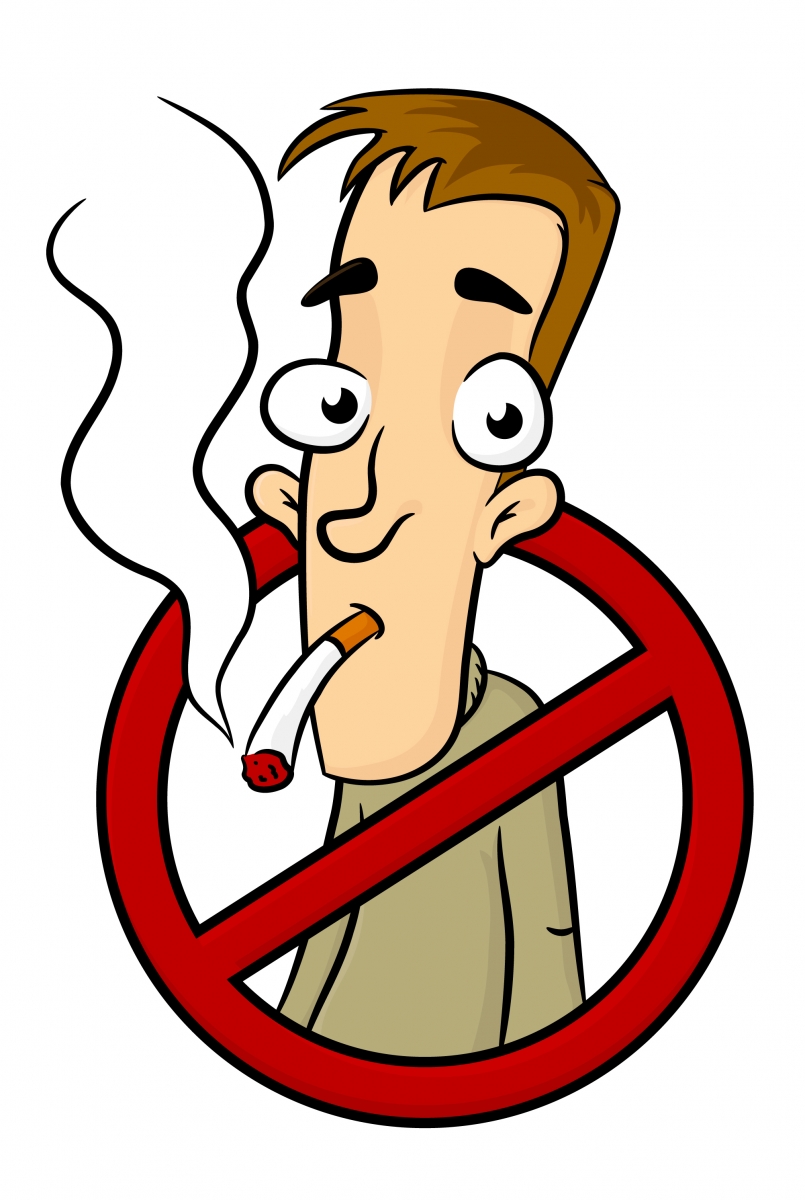 Special attention new regulation focuses on exactly how inspectors should behave when communicating with drivers. The document does not recommend rude or disparaging behavior, and also prohibits speech that is discriminatory based on gender, age, race, nationality, language, political or religious preferences. Statements that provoke drivers to illegal actions are also prohibited.
Special attention new regulation focuses on exactly how inspectors should behave when communicating with drivers. The document does not recommend rude or disparaging behavior, and also prohibits speech that is discriminatory based on gender, age, race, nationality, language, political or religious preferences. Statements that provoke drivers to illegal actions are also prohibited.
Initially, it was planned to introduce a ban on smoking when communicating with the driver in the regulations, but officials of the Ministry of Internal Affairs considered it redundant. According to Alexander Bykov, the existing code of ethics for civil servants already contains such a norm, and there is no point in duplicating it in another document.
Prohibition of boxes and chains for documents
The new regulation directly prohibits drivers from hiding documents in closed boxes and fastening them to the car. Changes to the regulation were made after a number of cases when motorists packed their documents in such a way that the inspector could not take them into his car or verify their authenticity. Now fastening documents is equated with a refusal to comply with the legal requirement to hand them over to the inspector, which promises not only a fine, but also arrest.
At the same time, the inspectors themselves are not required to hand over their documents to the drivers, although they must present them upon request.
Delivery of the driver to the car
Which officials added to the new regulation as one of the last, obliges the traffic police to deliver the driver to his car after passing a medical examination. But only if the driver is sober. According to Alexander Bykov, the regulation was supplemented with a rule obliging a police officer to escort a person to the place of suspension from driving a vehicle if the test result was negative.
The regulations contained a similar requirement before, but it only applied to cases when the driver was taken to a medical facility for examination. The new one requires doing the same after checking with a certified breathalyzer, for example, at the nearest traffic police post.
Electronic policy, a ban on the withdrawal of rights and numbers, checking documents from passengers
All other innovations have the status of technical ones, since they simply clarify or update the previously existing order. For example, the regulation no longer contains a description of the withdrawal procedures driving license and removal of numbers, since the legislation prohibits the removal of license plates, and only the court can take away the rights.
In addition, instead of a paper OSAGO policy, the inspector can only present a printout of an electronic policy. Finally, the traffic police received the right to require identification from all passengers in vehicle However, this innovation is only formal. The right to check passengers' documents existed before - traffic police inspectors could do this in the same way as any other law enforcement officers.
The regulation cancels the issuance of certificates after a traffic accident. Now drivers will only receive copies of protocols or resolutions on an administrative offense, which contain all necessary information to submit to insurance companies.
The regulation also fixed the procedure for drawing up the Europrotocol.




